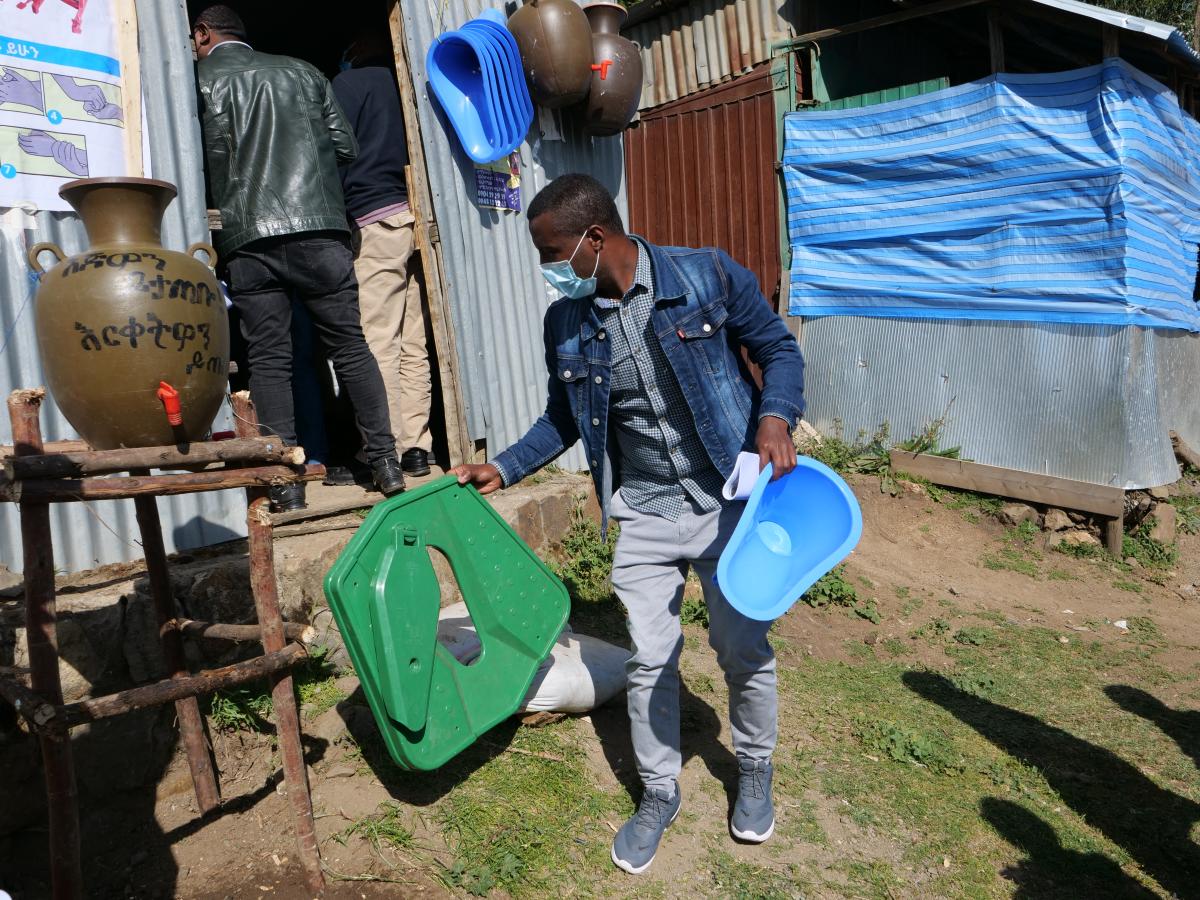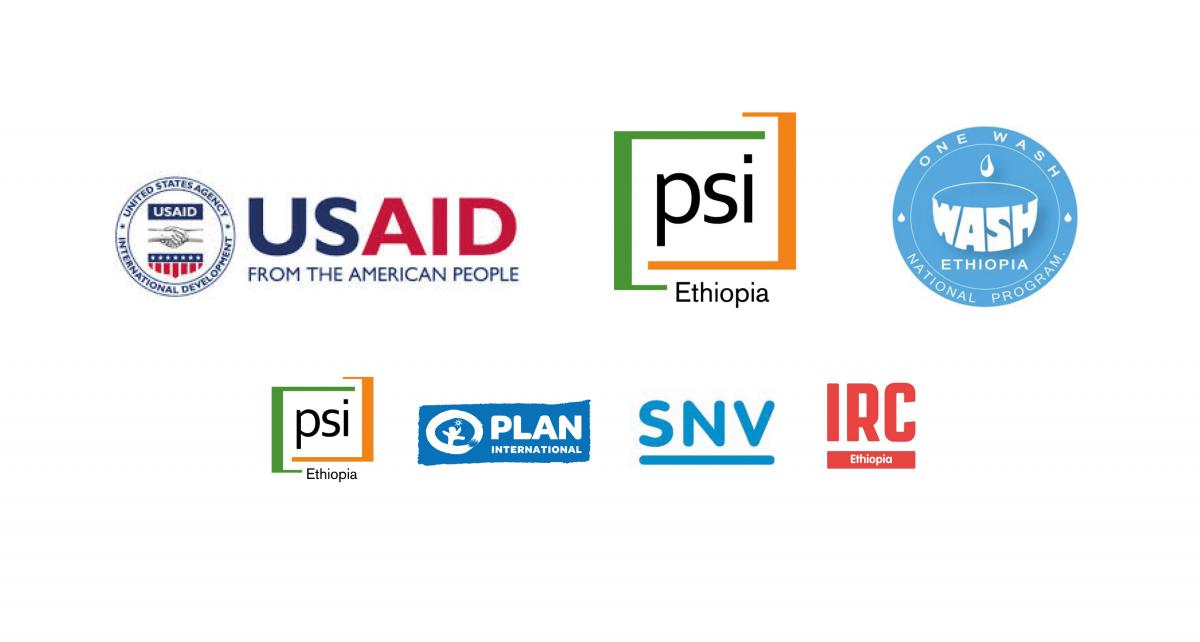Some key changes in the enabling environment could lead to significant growth in the sanitation market.
Published on: 23/08/2021

Ethiopia is working to address sanitation and hygiene challenges through market-based sanitation. The stakes are high as poor sanitation and hygiene are leading causes of illness. According to the second Health Sector Transformation Plan of Ethiopia, the country aims to drastically reduce sanitation-related illnesses by increasing the proportion of households with access to a basic sanitation service from 20% in 2019 to 60% in 2025. Ethiopia plans to achieve these goals through market-based sanitation, a development approach in which a sustainable marketplace provides reliable sanitation goods and services to consumers and creates viable business opportunities for suppliers.
These efforts have already begun in earnest. The country’s Market-Based Sanitation Implementation Guideline, which was developed by the Federal Ministry of Health in collaboration with development partners, provides a framework for building and expanding market-based sanitation.
As stated in the Market-Based Sanitation Implementation Guideline, ‘’Market-based sanitation is a sanitation market whereby the household fully pays at once or through installments to the supplier for the preferred/desired basic sanitation and hygiene products and/or services.’’ Because the market will not work without attractive and profitable business opportunities for suppliers, creating a favourable environment for private-sector enterprises and consumers to conduct business through supportive regulations and policies is a critically important piece to implementing market-based sanitation. This is known as the “enabling environment”.
According to USAID Transform WASH research conducted on Ethiopia’s WASH business climate, businesses offering sanitation products and services in the country face a multitude of challenges resulting from a poor enabling environment. These include access to foreign exchange, tax and tariff rates, intellectual property protection, business registration, and start-up requirements, import challenges, uncertain demand, and business and consumer financing. Lack of access to foreign exchange impedes importation of sanitation products and manufacturing inputs while taxes and tariffs levied on sanitation products increase the price of sanitation products and services, reducing affordability and customer willingness to pay. Challenges related to intellectual property rights, business start-up requirements, business registration, and uncertain demand discourage emerging businesses. Transform WASH's study examining the introduction of new sanitation products into the Ethiopian market indicated that bringing innovative plastic sanitation products to the local market took nine months longer than was originally planned. Bureaucratic hurdles related to importation, customs, logistics, high and confusing duties, and risk-averse investment decisions of corporate leads created delays and reduced profitability.
Additionally, Transform WASH's study on the assessment of sanitation financing options for enterprises and households shows that local enterprises and consumers are facing financing challenges. Businesses that may wish to offer sanitation products and services lack the capital to purchase raw materials in bulk to use for the production process and marketing tasks. Loan products are hard to access because they carry high-interest rates, or there are no sanitation-focused financial products at all.
Some key changes in the enabling environment could lead to significant growth in the sanitation market.
To make sanitation products and services affordable to all, the government of Ethiopia should exempt or reduce taxes and tariffs levied on sanitation products. Higher prices lower demand, placing additional economic burdens on poor households and reducing the profitability of businesses who wish to sell sanitation products.
Registering sanitation products as essential goods and including them in the priority items list would help solve challenges related to the scarcity of foreign exchange as such transactions receive priority status by sector and by good.
Building a favourable climate for emerging businesses by easing bureaucratic hurdles would enhance growth. There should be an environment in which businesses face fewer impending regulations and sluggish processes for business set-up.
Promoting household understanding of the value of sanitation products and why they should prioritise the improvement of their facilities will create demand for nearby products and services. To do this, Transform WASH experience and research shows that engaging health extension workers and women development army leaders in such promotion will yield positive results along with enhancing business marketing and sales skills.
Expanding financing options is critical for market-based sanitation as small businesses need more and better loan products to blossom. Providing sanitation-focused loans for businesses would enable them to produce, sell, and distribute sanitation products and services at a much greater scale. Also, strengthening microfinance institutions and village saving and credit associations that provide sanitation loans to consumers would enhance the purchasing power of households. In addressing the poorest customers, smart and targeted subsidies will help address the biggest affordability challenges.
At a fundamental level, establishing a conducive climate for market-based sanitation, working on improving financing restrictions for the enterprises and households, lessening bureaucratic hiccups, and creating demand will change the game and allow Ethiopia to meet its goals. In improving financing restrictions, financial institutions and the regulatory body needs to understand the value of providing finance for market-based sanitation and improve their directives and policy.
About Transform WASH
USAID Transform WASH aims to improve water, sanitation and hygiene (WASH) outcomes in Ethiopia by increasing market access to and sustained use of a broader spectrum of affordable WASH products and services, with a substantial focus on sanitation.
Transform WASH achieves this by transforming the market for low-cost quality WASH products and services: stimulating demand at the community level, strengthening supply chains, and improving the enabling environment for a vibrant private market.
USAID Transform WASH is a USAID-funded activity implemented by PSI in collaboration with SNV, Plan International, and IRC WASH. The consortium is working closely with government agencies, including the Ministry of Health, the Ministry of Water, Irrigation and Electricity, the One WASH National Program, and regional and sub-regional governments.

At IRC we have strong opinions and we value honest and frank discussion, so you won't be surprised to hear that not all the opinions on this site represent our official policy.